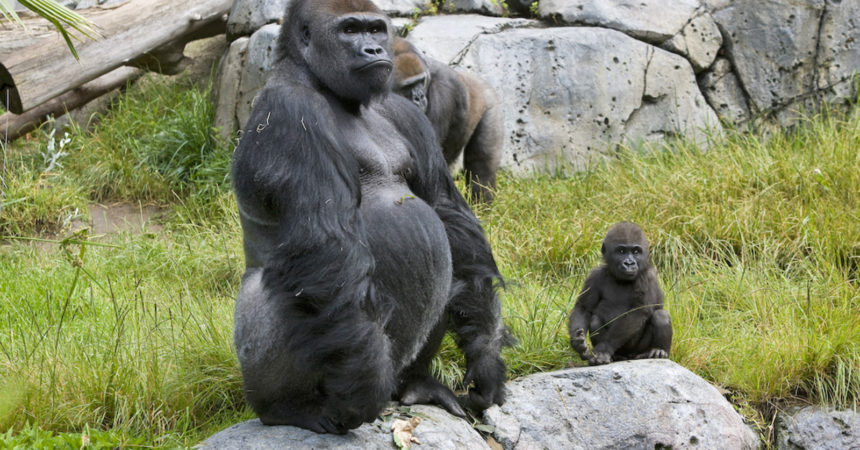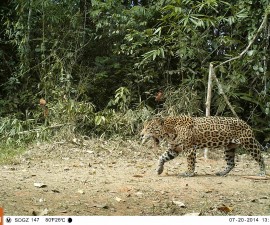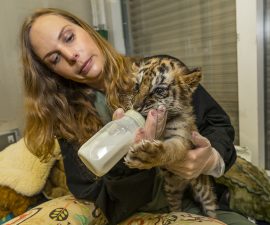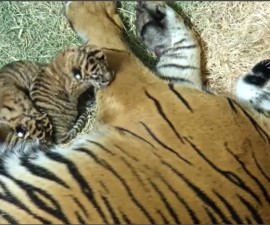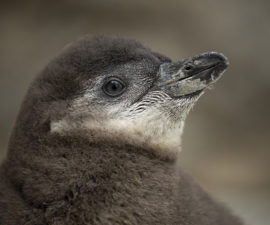As we celebrate fatherhood and paternal bonds this Father’s Day, it is a good time to reflect on the kindness, commitment, wisdom, and countless other qualities that human males can transmit to their kids. While not everyone has a father as cool as Phil Dunphy of Modern Family, plenty of dads step up to make youngsters flourish and thrive. Super dads are not exclusive to humans—many other species utilize unique fatherly powers to usher in the next generation. One extreme is the seahorse: the male actually fertilizes, incubates, and gives birth to a bunch of little sea horse tykes, after the female deposits her eggs in his pouch. Another extreme case of paternal care is that of the dapper, four-foot-tall emperor penguin of Antarctica. His mate lays a single egg, which she hands off to her fella for safe keeping through raging blizzards, scathing winds, and the coldest temperatures on the planet. She, meanwhile, high tails it to the sea for a two-month swim and feast. Male emperors face the elements with other dads-to-be with their eggs tucked in a warm layer of feathered skin called a brood pouch. By the time the females return, these die-hard dads have lost about half of their body weight, and she takes over while he waddles to the sea to feed.
Extreme papas aside, just how common is paternal care across the Animal Kingdom? Glad you asked. Among mammals, only 5 to 10 percent of species have significant paternal care. This may be due to females having to nurse the young (mammals have mammary glands, after all), so occasions of male assistance mean biparental care. Committed paternal care is more prevalent among carnivores and primates. The smallest and the largest (and several in between) primates rely on dad to get the baby-rearing job done. Pygmy marmosets, tiny monkeys of South America, often bear twins, so once she gives birth, the young are quickly foisted off on dad to carry and care for; mom takes them back only for (reluctant?) bouts of nursing.
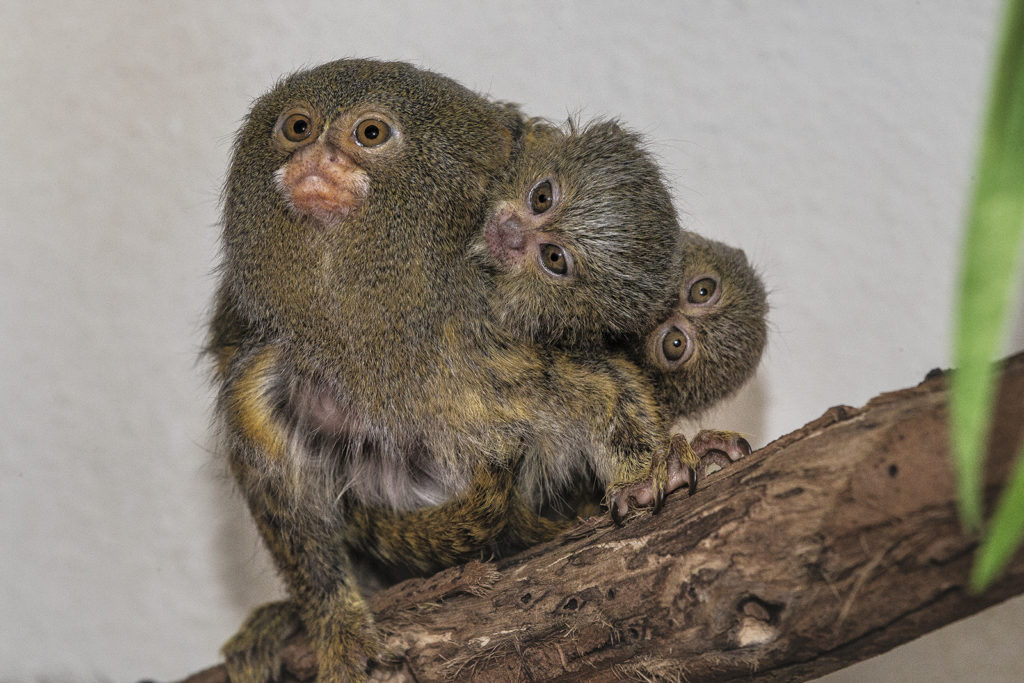
On the other end of the scale, male gorillas leading a troop of females and their offspring will fearlessly defend the group, and often show infinite patience with the youngsters, calmly mentoring them to maturity. That’s San Diego Zoo silverback Paul Donn and his son, Frank at the top of this story.
Other dogged dads care for their pups in non-domesticated canine species like African wild dogs, dholes, and wolves. While mom dens up to have her litter, dad stands guard outside the entrance and also hunts for food to share with the pack. Many pups cannot digest meat for the first couple of months of life, so dear dad does the domestic deed of regurgitating his meal for the youngsters. When dhole pups are born at the Safari Park, wildlife care staff have to keep a close eye on dad to make sure his giving nature doesn’t get the best of him and that he keeps enough food down to nourish himself. It’s a pack effort to help the alpha pair raise pups, so older sibs babysit the newbies while mom and dad head out for a bite to eat. Happily, they always bring home a doggy bag.
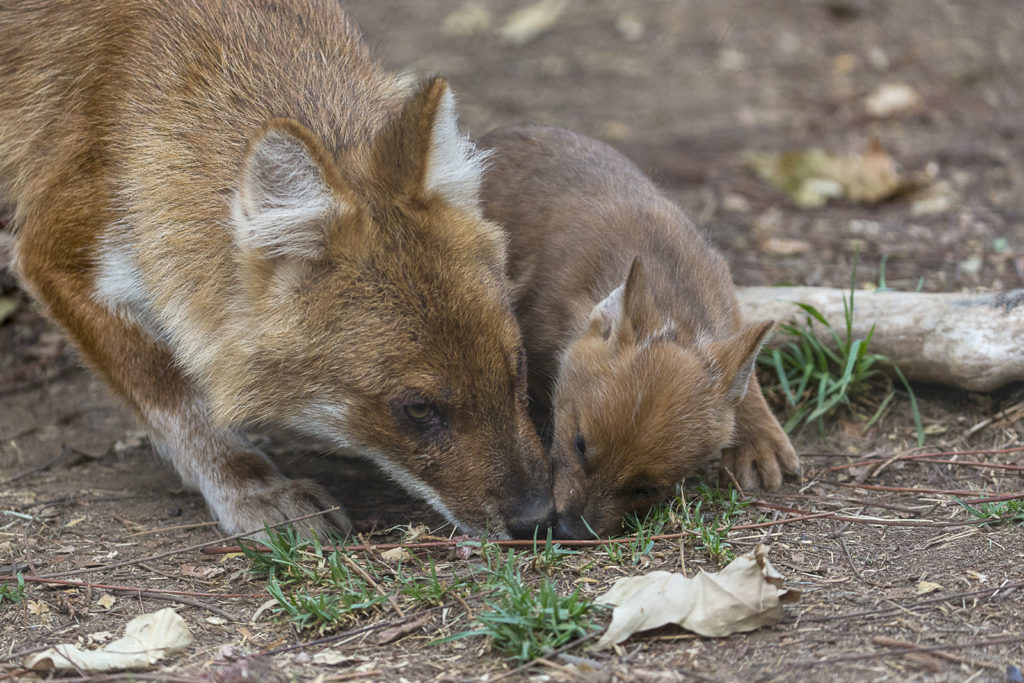
Among birds, both parents chime in with parental care in over 90 percent of avian species. Females often incubate the eggs, but her mate may bring her food while she is nesting and help feed the hungry chicks when they hatch. One common species you may encounter up close and personal is the ubiquitous mourning dove. These prolific birds inhabit much of North America and may have an astonishing six clutches per year. They are not afraid of people and may nest quite near high-traffic areas.
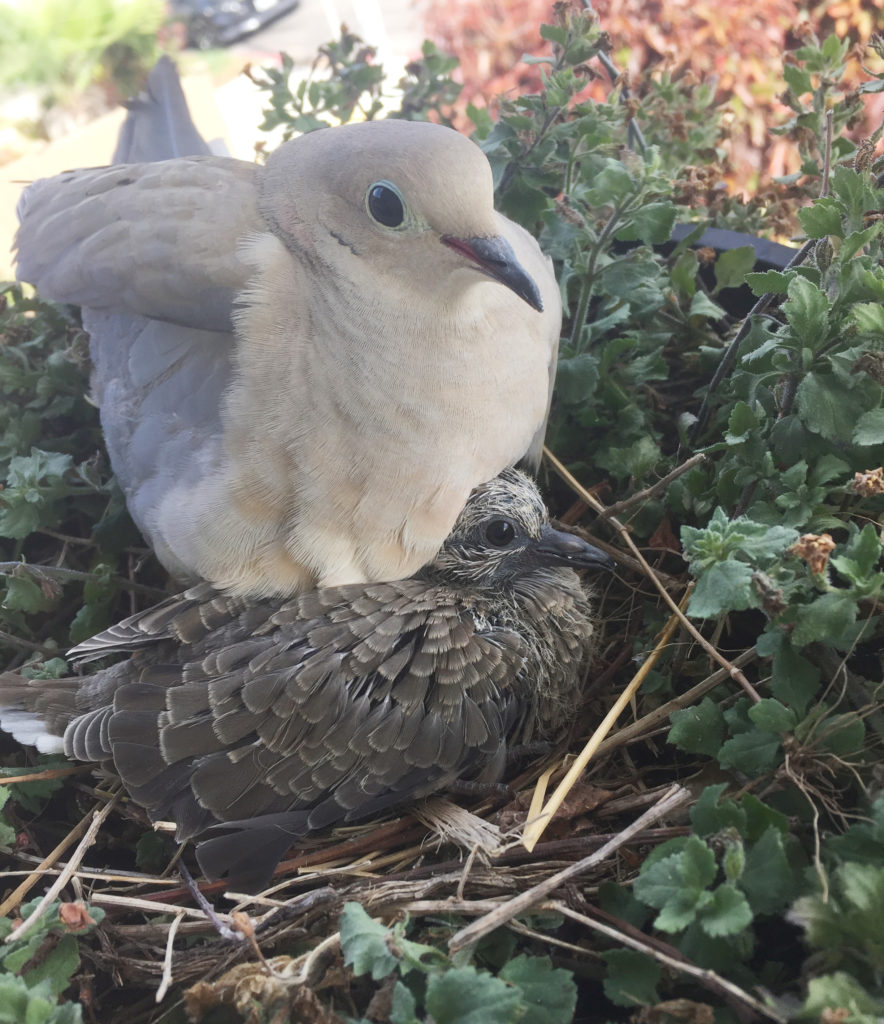
I had a pair nesting in a hanging basket on the porch. It was fascinating to observe the “changing of the guards” on the nest, as the female incubated the eggs through the night, and her mate took over in late morning for the day shift. When lifting off, their wings make a whistling sound, providing a few moments to take some photos of the youngster (one of the eggs was not fertile).
Another extreme example of paternal care is among the colorful, flightless cassowary of New Guinea, northern Australia, and surrounding islands.
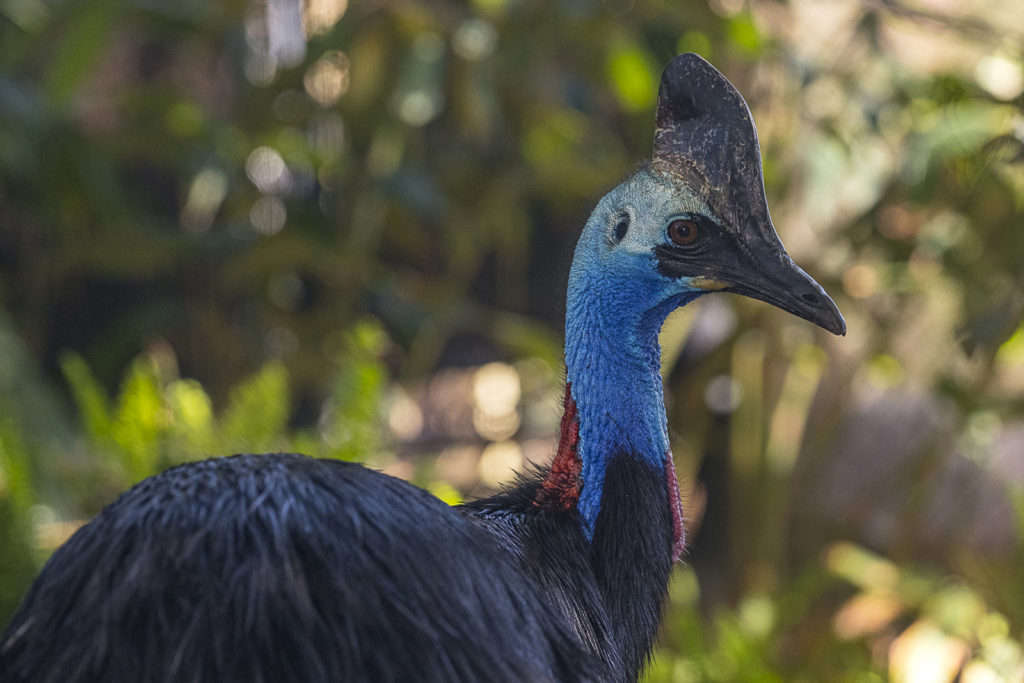
There are three species of this big, beautiful bird that subsists on fruits of several hundred different rain forest plants. But what really takes the cake is the level of care provided by cassowary dads. Once the female lays her three to five, vivid green eggs in a simple nest scraped in the ground, she flounces off back into the forest, leaving the male to incubate the eggs for weeks. Once they hatch, he fiercely protects and devotedly nurtures them for months, all on his own.
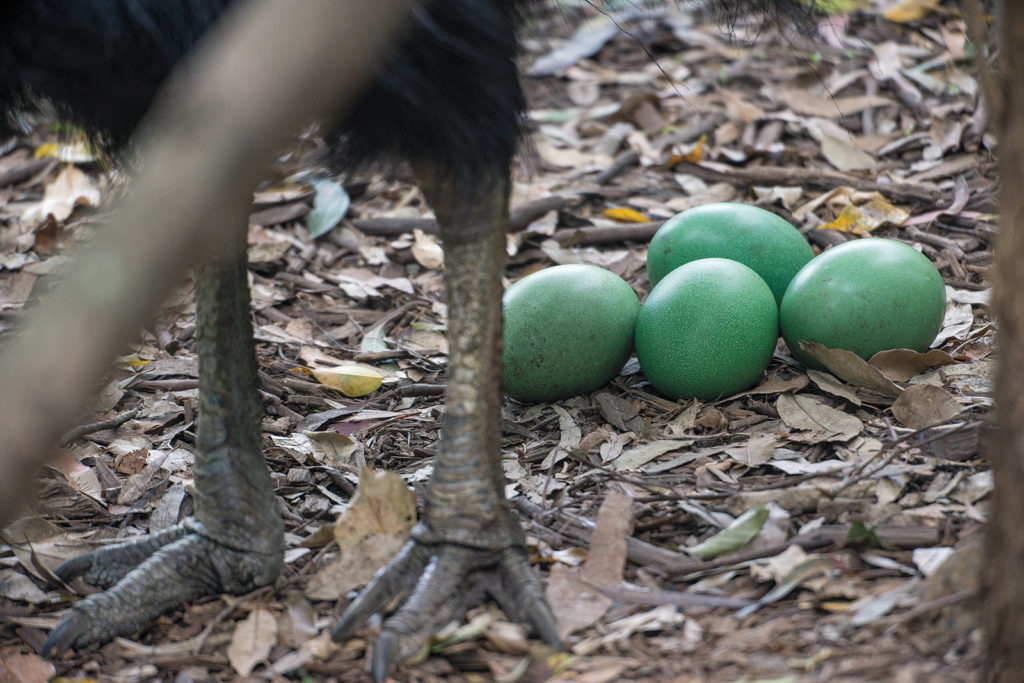
To all you wonderful dads out there, whether you’re on land, sea, or the couch, we want to celebrate you and wish you all the very best this Father’s Day!
Karyl Carmignani is a staff writer for San Diego Zoo Global. Read her story about giraffes (a good way to warm up for World Giraffe Day, which falls on Father’s Day this year!)

